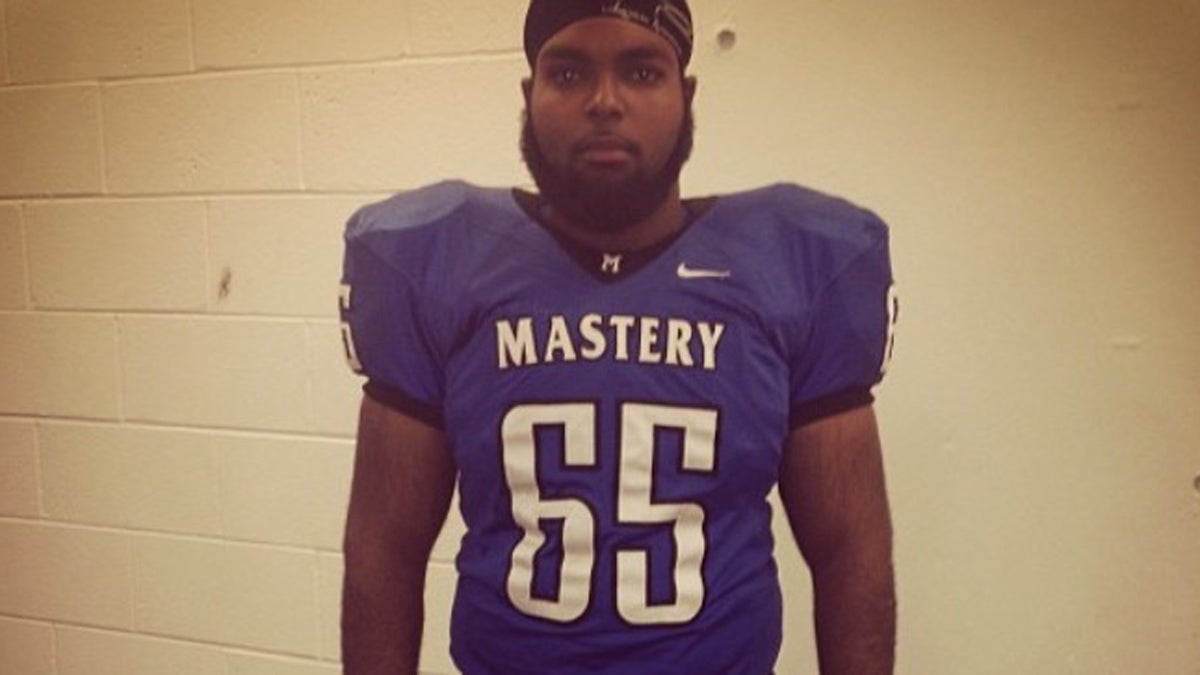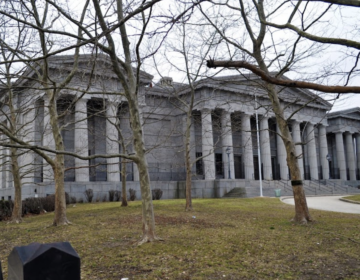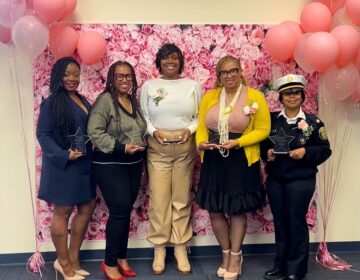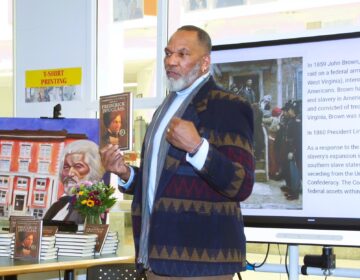Charter schools build leaders the NAACP should support

Austin Gibson is shown in his high school football uniform.
I graduated from a West Philadelphia high school that’s a charter school. Now in college, I also work at a charter school that’s focused on science and technology and promoting self-reliance in the African-American community. So when I heard that the NAACP — a civil rights organization I’ve revered for fighting for black students and families — was opposed to charter schools, I was shocked.
This weekend, the NAACP’s National Board of Directors will meet to vote on a policy that seeks to prevent new charter schools from opening. They must not have much personal experience with charter schools, which are public, tuition-free, and open to all, but operate independently from local school districts. I’ll talk about my experience in a minute, but first, let me share what it was like for me in a traditional public school.
I was assigned to district-run schools in Philadelphia starting in kindergarten. By fourth grade, I was getting in fights every day. It got so I’d pretend to be sick to miss school. I was worried somebody was going to do something to me.
While I had some teachers looking out for me, other teachers reinforced that I might as well stay home. “You guys don’t have to learn,” I remember one saying. “I’m going to get paid regardless.” The school building was in terrible condition. Our music program had been cut. I remember textbooks dating back to 1980 — I was born in 1995 — that taught about planets that weren’t even considered planets anymore.
People who don’t like charter schools will say, “See, that’s why charters shouldn’t exist! They’ve taken money away from district schools.” To that, I say three things. First, charter schools are public schools. They enroll the same kinds of kids as district schools. Second, when was that time when district schools had all the money they needed? Those out-of-date textbooks had been in kids’ hands long before charter schools were created. Third, even with cuts to school district budgets, charter schools like the one I went to still manage to do a better job, with less money than district schools. Around the country, charter schools operate with 28 percent less public and private funding than neighboring district schools.
For African-American students from low-income households, like me, the academic results are better, too. According to a 2015 Stanford University study of 41 regions, black students in charter schools learned the equivalent of 44 extra days in reading and 59 extra days in math. High school graduation rates are also higher.
The charter high school I graduated from, the Shoemaker Campus of Mastery Charter School, was 180 degrees different from what I experienced in elementary schools. Suddenly I had structure and rules that gave me safety, consistency, and certainty. Mastery helped me to control my anger. I started academically behind, but I got one-on-one attention to catch up. The building was comfortable and made me want to come to school. When it was hot outside, I knew the air-conditioning in my building would keep it open. I wasn’t afraid to use the bathroom.
Most significantly, Mastery taught me how to be a leader and how to be an advocate for myself and for others, how to speak up and be vocal. Lately I’ve been working with my university’s president to set up a dual enrollment agreement so that students at charter high schools can take college-level courses, saving them money and giving them a head start on their postsecondary educations. I’m also working at another charter school as a tutor and mentor.
My advocacy includes this column. When I think about where some of my friends from childhood have ended up, it’s no exaggeration to say that charter schools saved my life. I can’t thank them enough. As the NAACP’s leaders meet this weekend to consider a policy that says charter public schools are bad for kids like me, bad for families like mine, and bad for neighborhoods like where I come from, I say this: You’re not being the advocates you think you are. You’re not being the advocates you can be. And you’re not addressing the right problems alongside others who have interests of students like me at heart.
I represent the next generation of civil rights leaders who can follow in the footsteps of the NAACP’s legends and forge new paths for people of color. But first, young advocates like me need an education before we start out. Don’t close a door that gives us the opportunity to go where we want to go.
—
Austin Gibson is a junior at Indiana University of Pennsylvania.
WHYY is your source for fact-based, in-depth journalism and information. As a nonprofit organization, we rely on financial support from readers like you. Please give today.




